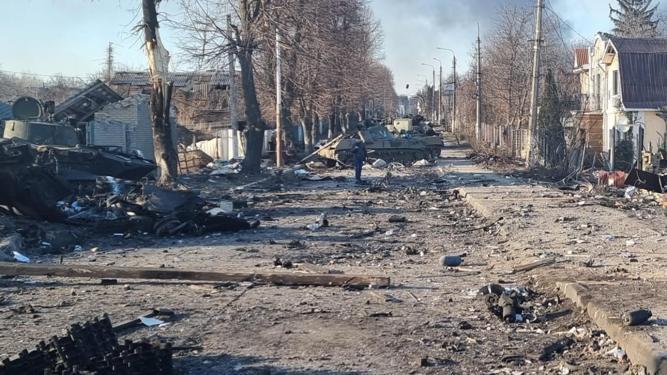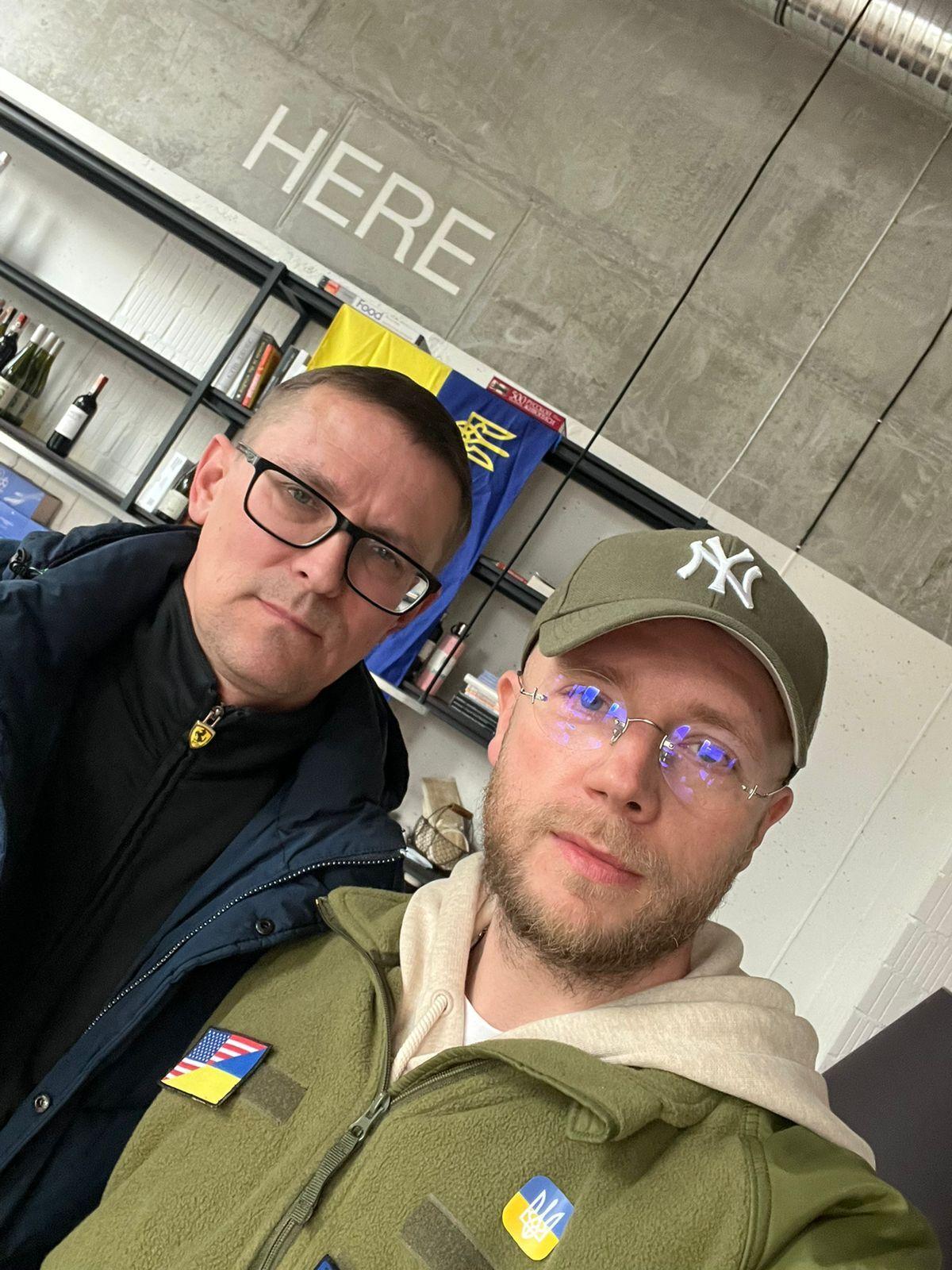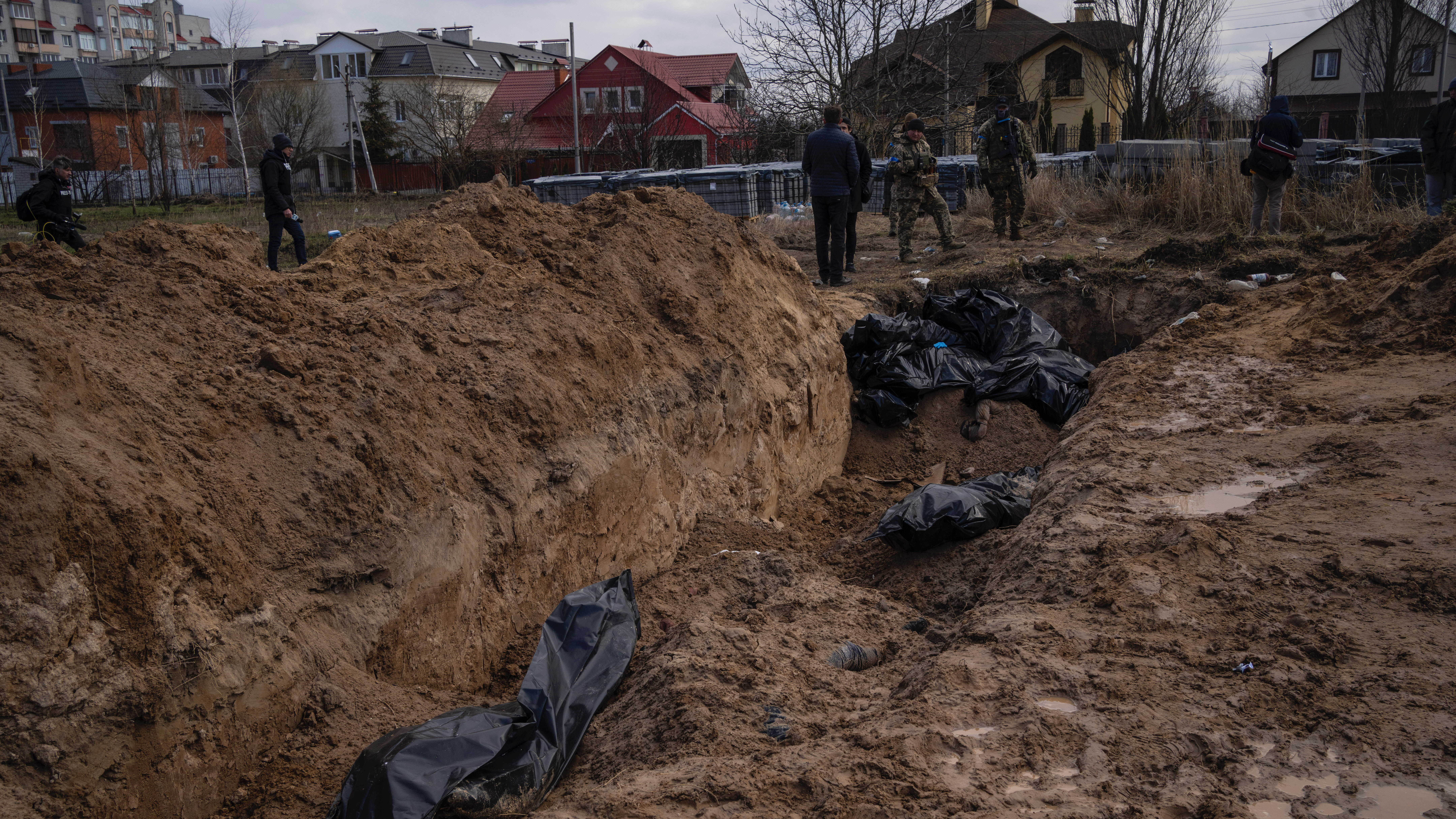Moscow faced global revulsion and accusations of war crimes on Monday after the Russian pullout from the outskirts of Kyiv, Ukraine, revealed streets strewn with corpses of what appeared to be civilians, some of whom seemed to have been killed at close range.
The grisly images of battered bodies left out in the open or hastily buried led to calls for tougher sanctions against the Kremlin, namely a cutoff of fuel imports from Russia.
Related: Russia faces growing outrage amid new evidence of atrocities
Ukrainian President Volodymyr Zelenskiy left the capital, Kyiv, for his first reported trip since the war began nearly six weeks ago to see for himself what he called the “genocide” and “war crimes” in Bucha, a Kyiv suburb. He said that dead people had been “found in barrels, basements, strangled, tortured.”
Later, in a video address to the Romanian parliament, Zelenskiy said that he fears there are places where even worse atrocities have happened.
“The military tortured people and we have every reason to believe that there are many more people killed,” he said. “Much more than we know now.”
Related: The Russian invasion shows how digital technologies have become involved in all aspects of war
Ukrainian Oleksii Vostretsov was trapped in his hometown of Bucha for 22 days at the start of the war. He is now in Kyiv and spoke to The World through an interpreter, Aleksandr Prokhorenko.
At his home in Bucha, his family sheltered in the basement. He lingered nearby in case a missile hit, and he needed to dig them out, he said.

The sound of gunfire was constant: “Every day, from 9 o’clock in the morning, they were shooting and shooting and shooting.”
He and his family could see the destruction outside — smoke, guns pointed at the streets, commercial buildings and warehouses, and dust in the air.
Related: Navigating war without sound: Ukraine’s deaf refugees
Three guards across the street were also shot to death, he said.
On March 8, Russian troops came into their house. The soldiers confiscated their SIM cards from their phones, and shot at the house’s bottom floor.
Vostretsov said that possibly the Russian soldiers spared their lives because they saw his grandfather’s diploma from fighting in World War II — in turn, they may have felt some respect for his family, he said.
A couple of days later, he had to bury one of his neighbors in front of his house. The ground was cold so that he and another neighbor were only able to dig 1 meter — “But we still managed to do that because it’s our mission as human beings,” he said.
“People who we didn’t know became like relatives and like brothers because we have the common enemy.”
Vostretsov didn’t know his neighbor personally, he said, but “People who we didn’t know became like relatives and like brothers because we have the common enemy.”
That was the same day that 67 people were buried in a common memorial, or mass grave.

Related: West remains divided on sanctions, weapons to Ukraine, former amb to Russia says
“We escaped by chance. By wonder,” he said. “By luck.”
The traumatic scenes are still with him, though: “I will never forget — I’m a Russian speaker, I speak Russian language — and I don’t know how to communicate with my relatives in Russia after all that took place.”
Although Russian Foreign Minister Sergey Lavrov dismissed the scenes outside Kyiv as a “stage-managed anti-Russian provocation,” Germany and France have reacted by expelling dozens of Russian diplomats, suggesting they were spies.
US President Joe Biden said Russian leader Vladimir Putin should be tried for war crimes.
The Associated Press contributed to this report. Anna Pratt edited this digital story.
Our coverage reaches millions each week, but only a small fraction of listeners contribute to sustain our program. We still need 224 more people to donate $100 or $10/monthly to unlock our $67,000 match. Will you help us get there today?
